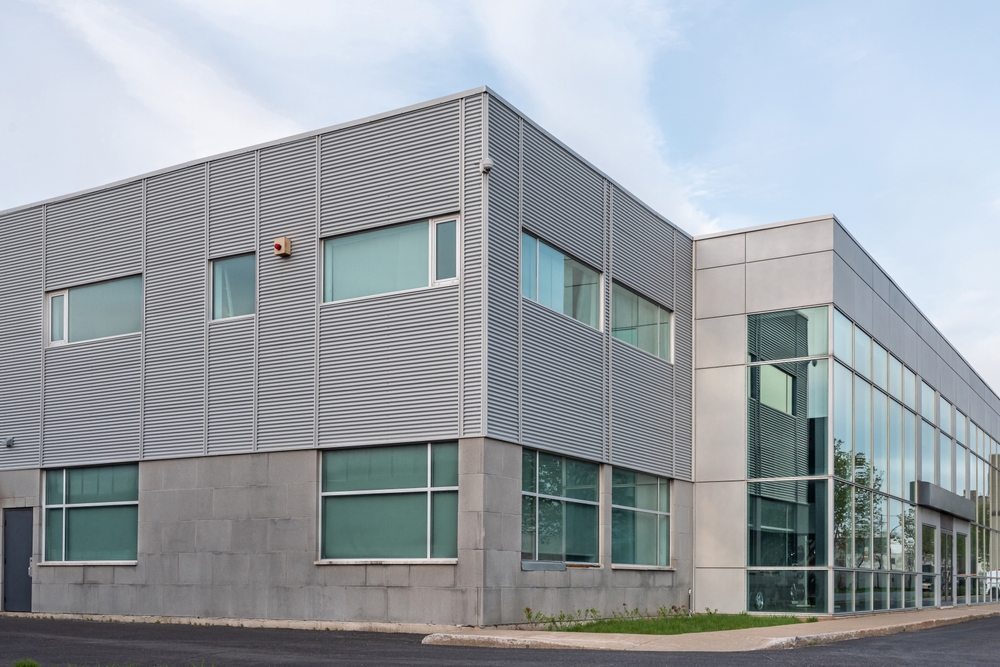Bidirectional Amplification Systems in Berks County, PA
When commercial and industrial building owners, property managers, and building automation professionals need to protect their building, tenants, businesses, and the building’s contents from potential fires or other emergencies, they always turn to Keystone – the best bi-directional amplification system provider in Berks County, PA. A bi-directional amplification system is a must-have RF signal booster system that ensures proper radio frequency (RF) signal strength and coverage for first responders and emergency personnel.
At Keystone, we have been the go-to solution for commercial building owners, building automation companies, and on-site building managers wanting to ensure their building’s cellular communication systems are protected against RF signal interference. For over 60 years, we have provided essential bi-directional amplification system installation, servicing, repairs, and maintenance to ensure cellular communications within the buildings for first responders are free of RF signal interference, distortion, and noise.
Keystone is an accredited and certified LSA, NAFED, NFPA, NIFAD, and FSSA company comprising highly trained bidirectional amplification system technicians, service personnel, and engineers. Our team works together to ensure our Berks County, PA, customers have buildings that are safe and secure and that meet NFPA, IBC, and IFC code compliance requirements.
At Keystone, we have invested in training our technicians and service personnel to protect your building. Offering 24/7 emergency service 52 weeks a year ensures you are never left in situations where your existing building’s cellular communications are non-functional.
How BDA Systems Impact Emergency Telecommunications
As critical BDA systems in Chester County, PA, installers, Keystone Fire fully understands how easily a building’s cellular communication network can encounter signal loss. With a building, countless obstructions can interfere with cellular signal strength. The building’s walls, their thickness and material composition, stairs, levels, chairs, desks, glass windows, and hallways – in addition to other common obstructions – all can refract, distort, or absorb RF signals, reducing their strength and eventually leading to distorted RF signals or complete signal loss.
For first responders and emergency personnel, this loss of cellular RF signal strength can have serious consequences—both for them and the people within the building they’re trying to assist. A bidirectional amplification system reduces the impact of RF signal loss by amplifying the signal range while also eliminating RF signal noise.
What Types of Facilities Benefit from BDA Systems?
All buildings should have a bidirectional amplification system regardless of their type, structure, or number of stories. Other common facilities that require a bidirectional amplification system include underground tunnels, large recreational facilities like stadiums, and large condo complexes. The BDA technicians in Lancaster, PA, from Keystone Fire, are experts in installing, maintaining, and servicing bidirectional amplification systems.

What Factors Affect the Performance of a BDA System?
Several factors can directly impact the performance of your building’s BDA system. First, the distance the RF signal must travel has a direct impact on how well your Berks County PA building’s bi-directional amplification performs. The longer the RF signal travels, the more interference and noise become problematic. The Firestone BDA systems technicians are experts at ensuring your Berks County, PA, building’s BDA system is positioned correctly. Sometimes, two or more BDA systems may be needed to ensure strong cellular signal strength.
Second, even though a bidirectional amplification system amplifies the RF signal’s strength, the signal gain can still be impacted by common obstructions such as the previously mentioned walls, levels, stairs, etc. The building’s design, materials, and method of construction have a direct impact on cellular communication. Multi-level buildings or those with unique geometries and profiles can impact cellular RF signal strength.
Third, the placement of the DAS antenna and Donor Antenna—as well as their design and performance—can directly impact RF signal transmission. Fourth, RF signal interference can also occur from a building’s Wi-Fi network, existing electrical machinery and equipment, and mobile wireless devices, networks, and laptops within the building.
Finally, a defective power supply or one without sufficient power can impact how well the bi-directional amplification system amplifies the RF signal.
If you own a building in Berks County and need a bi-directional amplification system installed, serviced, or maintained by an experienced team, contact us now.

